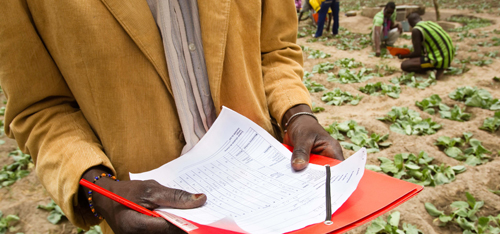Gender empowerment
In sub-Saharan Africa, women make up roughly half of the agricultural workforce. But because they are frequently discriminated against, socially and culturally, they often lack access to the knowledge, productive assets, inputs, technologies and decision-making skills needed to increase agricultural productivity and incomes.
Investing in rural women − and ensuring that they have access to and control over resources − can yield some of the best returns in terms of reducing poverty, food insecurity and malnutrition within communities, especially among the most vulnerable, such as youth and the elderly. With this in mind, the IPPM programme has been working to empower women in agriculture. This entails ensuring that a gender perspective is well integrated within its operational strategy, training all stakeholders and promoting greater awareness of and exchange on gender issues.
Mainstreaming gender
The IPPM programme mainstreams a gender perspective into all stages of its projects, from planning and design to implementation and evaluation. Doing so brings to the fore current gender relations and constraints faced by women in agriculture, which in turn helps to inform decision-making and ensure that activities are more gender-inclusive and balanced.
Developing capacity
By encouraging a fair representation of women in farmer field schools (FFS) and facilitator training, the IPPM programme allows for better visibility of women in agriculture at local level and promotes positive changes in attitudes, behaviours and practices. Efforts to raise awareness of gender discrimination and to highlight women's contribution to agriculture and development only strengthen this. A strategy on mainstreaming gender in the IPPM FFS is being developed for distribution to IPPM programme countries, targeting farmers, community leaders, fieldworkers, FFS facilitators, local government and coordination units.
Improving information and knowledge
Thanks to gender mainstreaming during project design, the IPPM programme has quantitative and qualitative data on women’s access to its products and services. The FFS approach, which fosters information and knowledge sharing, is also helping to build women's leadership; the learning-by-doing environment of the FFS can bolster women’s critical thinking, decision-making and communication skills. Furthermore, FFS, especially when coupled with community listeners’ clubs, can provide an excellent entry point for discussing gender roles in communities and for raising local awareness of existing gender gaps.

